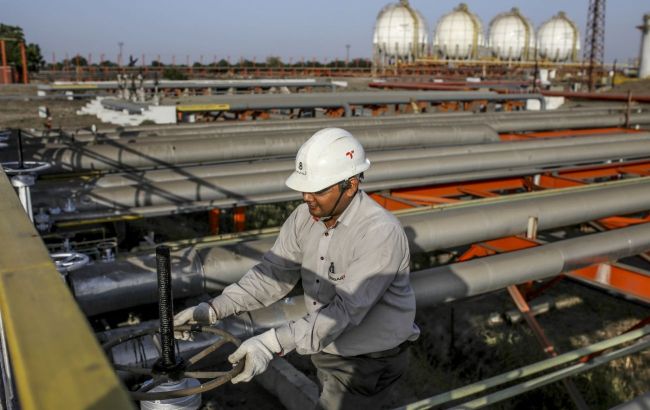Indian refinery cuts oil processing after EU sanctions — Reuters
 Photo: EU sanctions hit Putin's Indian friends (Getty Images)
Photo: EU sanctions hit Putin's Indian friends (Getty Images)
Sanctions imposed by the European Union against the Russian energy sector have forced Indian company Nayara Energy to reduce its oil refining capacity. This is India's largest private oil refinery, partly controlled by Rosneft, according to Reuters.
Nayara reduces refining
According to sources, Nayara Energy reduced the load on its plant in Vadinar to 70-80% after the EU sanctions were imposed on July 18. The reason is difficulties with the export of petroleum products and a lack of fuel storage capacity.
Previously, the refinery had been operating steadily at over 100% capacity. However, in July, at least two tankers refused to load, and one carrying Russian oil was redirected to another port.
Problems with exports and partners
Nayara usually exports more than 4 million barrels of refined products per month, including diesel, gasoline, jet fuel, and oil. But after the sanctions, traders began to avoid working with its fuel.
The company is owned by entities linked to Russia, including Rosneft, and remains one of the largest processors of Russian oil in India. Nayara accounts for about 8% of the country's total refining capacity of 5.2 million barrels per day.
Personnel and legal changes
Amid sanctions pressure, Nayara changed its CEO. Alessandro des Dorides was replaced by Sergey Denisov, who previously served as the company's director of development.
In addition, the company filed a lawsuit against Microsoft over the termination of services by the American corporation.
Political and economic context
India has become the largest buyer of Russian oil supplied by sea since the start of Russia's full-scale aggression against Ukraine. However, new EU sanctions are complicating logistics and affecting the stability of oil refining in partner countries.
Industry sources say the situation could worsen if Nayara's export channels are not restored. The company faces further risks, particularly from international software and financial services providers.
US President Donald Trump unexpectedly shortened the deadline for Moscow to end the war against Ukraine. The new sanctions include a 100% duty on buyers, including India.
Three Persian Gulf countries have excess oil production capacity and will be able to quickly replace Russian raw materials.


